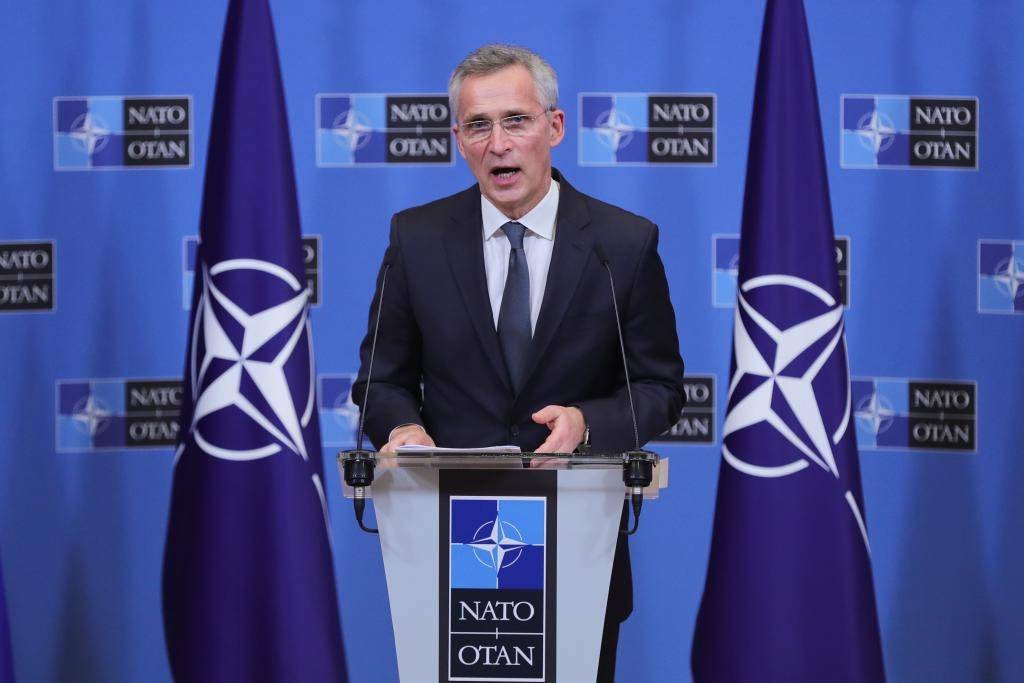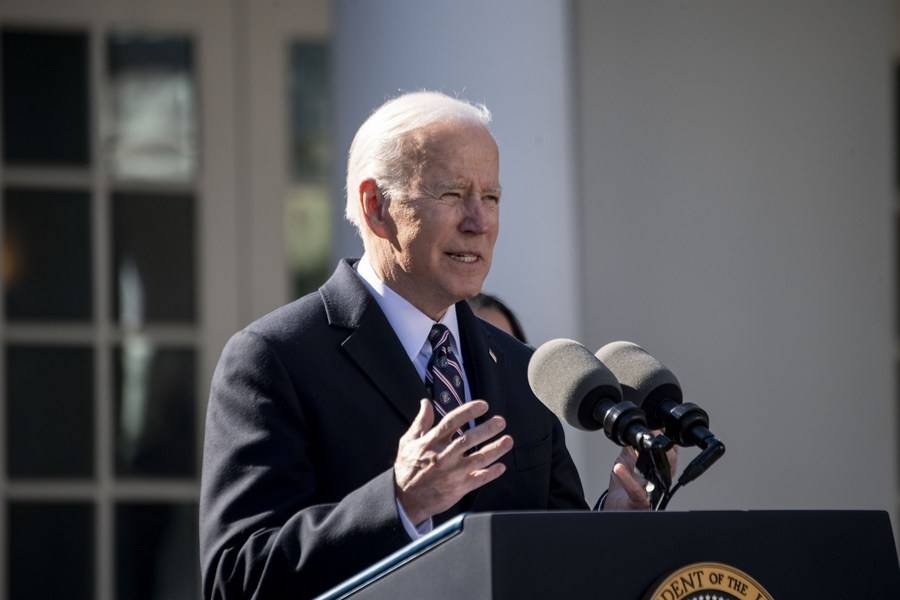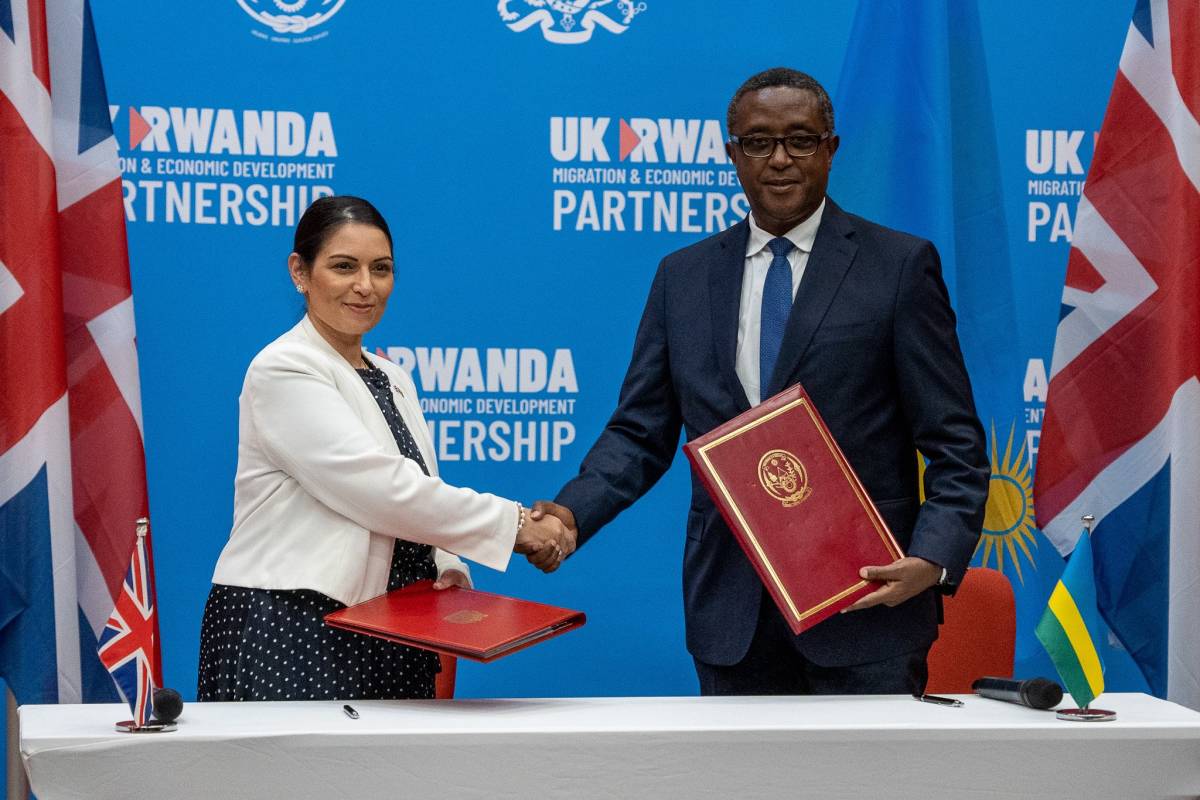The summit, originally set for March 28 and 29 before being delayed without a new date, will now take place on May 12 and 13.
President Joe Biden will meet in mid-May with the leaders of Southeast Asian nations, with a likely focus on the rising power of China.
The summit, originally scheduled for March, “will demonstrate the United States’ enduring commitment to ASEAN,” White House press secretary Jen Psaki said in a statement, referring to the Association of Southeast Asian Nations.
“It is a top priority for the Biden-Harris Administration to serve as a strong, reliable partner in Southeast Asia,” the statement said.
The summit, originally set for March 28 and 29 before being delayed without a new date, will now take place on May 12 and 13.
The meeting was postponed amid reports that the leaders of some ASEAN members had scheduling conflicts, and as the Ukraine crisis continued to deepen.
The United States has long said that strengthening its ties to Asia was a foreign policy priority.
On March 29, Biden met at the White House with a key ASEAN member, Prime Minister Lee Hsien Loong of Singapore, and said he wanted to ensure that the region remains “free and open” — a reference to what the US sees as attempts by rising power China to dominate international trade routes.
Biden had participated in a virtual summit with ASEAN leaders in October.
In that summit, Psaki noted in her statement, Biden announced initiatives to expand US engagement with ASEAN on COVID-19, climate change, economic growth and more.
A tense competition with China has become one of the greatest foreign policy challenges for the United States, though other issues — the chaotic withdrawal from Afghanistan and the war in Ukraine — have demanded more urgent attention.
ASEAN members include Brunei, Cambodia, Indonesia, Laos, Malaysia, Myanmar, the Philippines, Singapore, Thailand and Vietnam. Several of them have experienced growing friction with Beijing.
The US statement Saturday did not make clear whether the leaders of Myanmar would in fact attend. The administration has accused that country’s military leaders of perpetrating a “genocide” against the Rohingya minority.
ASEAN has sought — in vain so far — to find a diplomatic solution since the military took power there in a 2021 coup.
Singapore Prime Minister Lee welcomed the decision.
We welcome his intention to host an ASEAN-US special summit here soon. It’s a strong affirmation of American commitment to Southeast Asia and to ASEAN centrality. The President and I discussed the importance of the US growing both its strategic and economic stakes in the Asia Pacific, Lee said.
Biden said the US and Singapore are working to uphold a rules-based international order supporting the founding principles of the United Nations and advance a future for the Indo-Pacific that is both free and open.
We also discussed a wide range of concerns for peace and stability in the Indo-Pacific. That includes ensuring that all nations in the region, including China, uphold the principles that enable a free and open region. Singapore and the United States are both committed to freedom of navigation as well as an unimpeded flow of maritime commerce in the South China Sea, he said, amidst China’s aggressive actions in the region.
Beijing claims almost all of the 1.3 million square mile South China Sea as its sovereign territory. China has been building military bases on artificial islands in the region also claimed by Brunei, Malaysia, the Philippines, Taiwan and Vietnam.
‘US Indo-Pacific strategy ‘as dangerous’ as NATO expansion in Europe’
The U.S. Indo-Pacific strategy and the creation of groups such as the Quad were “as dangerous” as NATO’s eastward expansion in Europe, a top Chinese official has said.
The Ukraine crisis, Vice Foreign Minister Le Yucheng told a forum in Beijing, “provides a mirror for us to observe the situation in the Asia-Pacific” and the region “faces two opposite choices: should we build an open and inclusive family for win-win cooperation or go for small blocs based on the Cold War mentality and group confrontation?”
Chinese officials have blamed NATO’s expansion for triggering the crisis in Ukraine. China, like India, has abstained from UN resolutions targeting Russia. Beijing has, however, gone further by blaming the U.S. and NATO for the crisis and calling for Russia’s “legitimate security concerns” to be addressed.
If there have been some broad similarities in the responses of China and India to Ukraine — from abstaining at the UN to calling for diplomacy and focusing on the evacuations of their nationals — one striking difference has been in China drawing a link between NATO’s actions in Europe and those of the U.S. and its partners and allies in Asia.

Le is a former Ambassador to India and is tipped by some observers in Beijing to become China’s next Foreign Minister or a key figure in the foreign policy establishment following the once-in-five-year Party Congress set for November this year. The current Foreign Minister Wang Yi is expected to complete his term in March next year when the Parliament or National People’s Congress (NPC) will appoint a new Premier and Cabinet Ministers.









